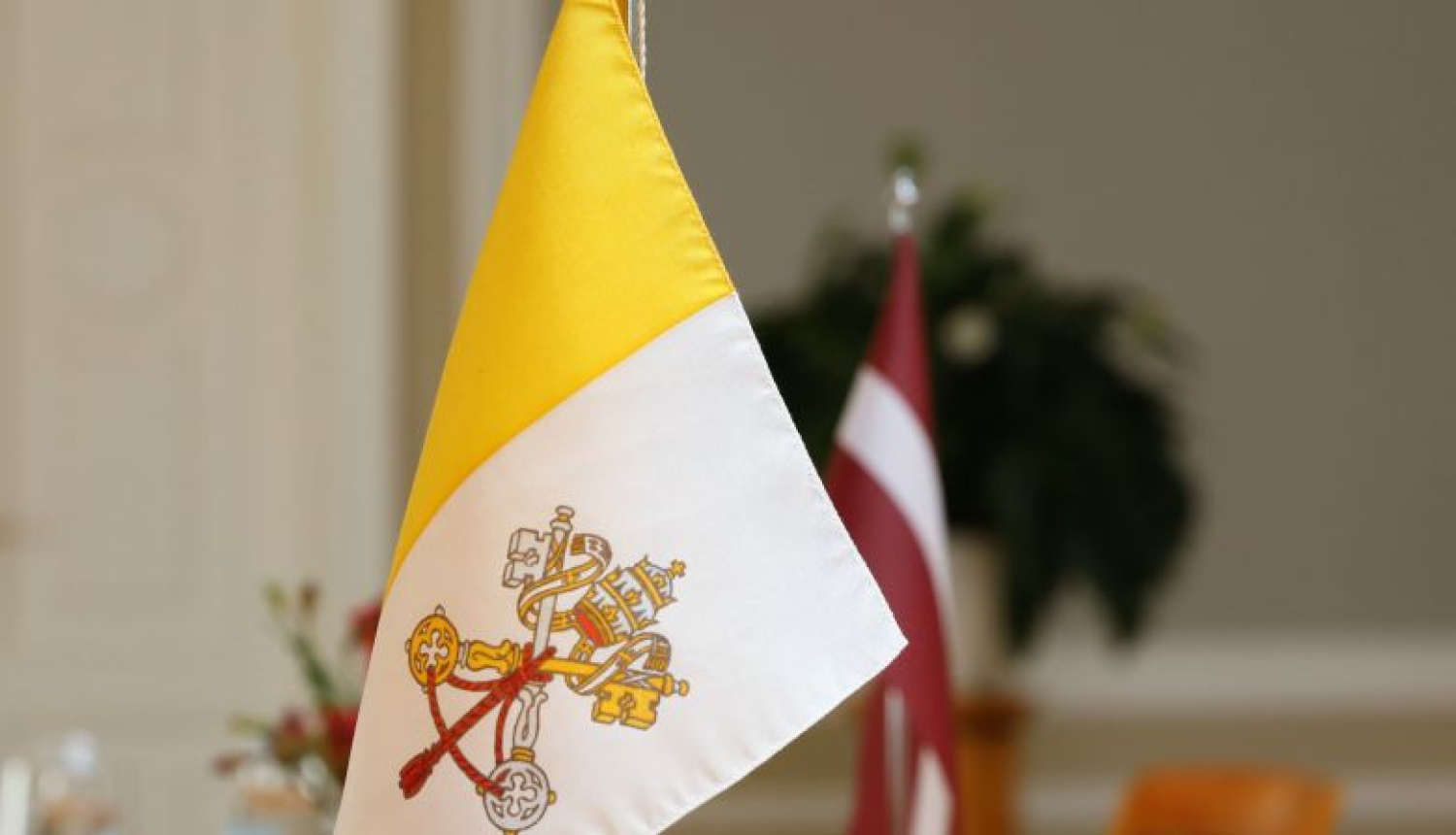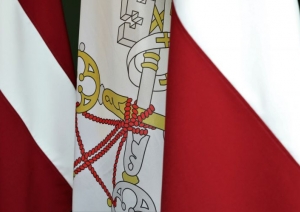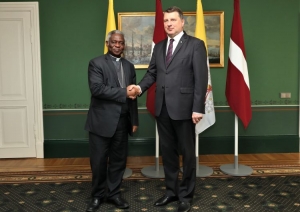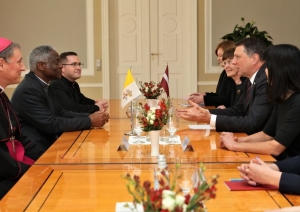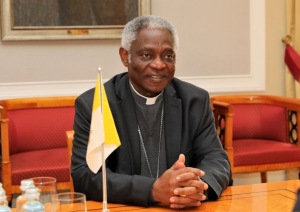During the meeting, the President of Latvia thanked for the visit of Pope Francis to Latvia on 24 September 2018, and he emphasised its historical and symbolic significance – the year 2018 marked 100 years since the establishment of the Republic of Latvia and 25 years since the visit of Pope John Paul II to Latvia.
The President of Latvia and the Prefect of the Dicastery for Promoting Integral Human Development of the Holy See noted the excellent diplomatic relations between Latvia and the Holy See. The Pope’s visit to Latvia gave additional impetus to strengthening ecumenical cooperation. The President of Latvia pointed out that ecumenical co-operation contributed to the unity of society. Latvia is proud of its ecumenical cooperation among Christian denominations in Latvia. This also applies to chaplains in the army and hospitals.
During the meeting, the President of Latvia stressed that the state and the Roman Catholic Church in Latvia cooperated very well. The state takes care of the preservation and restoration of sacral architecture, provides the opportunity to master Christian teaching in elementary schools. Successful and diverse co-operation has also developed at the municipal level, mainly through the organisation of ecumenical, cultural, and social assistance activities. Local governments also provide financial support for churches and maintenance of their environment.
The Dicastery for Promoting Integral Human Development of the Holy See is an authority established by Pope Francis in early 2017. Pope Francis appointed Cardinal Turkson as its prefect (manager). The established Dicastery brings together four pontifical councils, which have operated separately before. It is responsible for a wide range of issues related to marginalised people, victims of armed conflicts and natural disasters, prisoners, the unemployed, the poor, migration, and the promotion of justice and peace.




